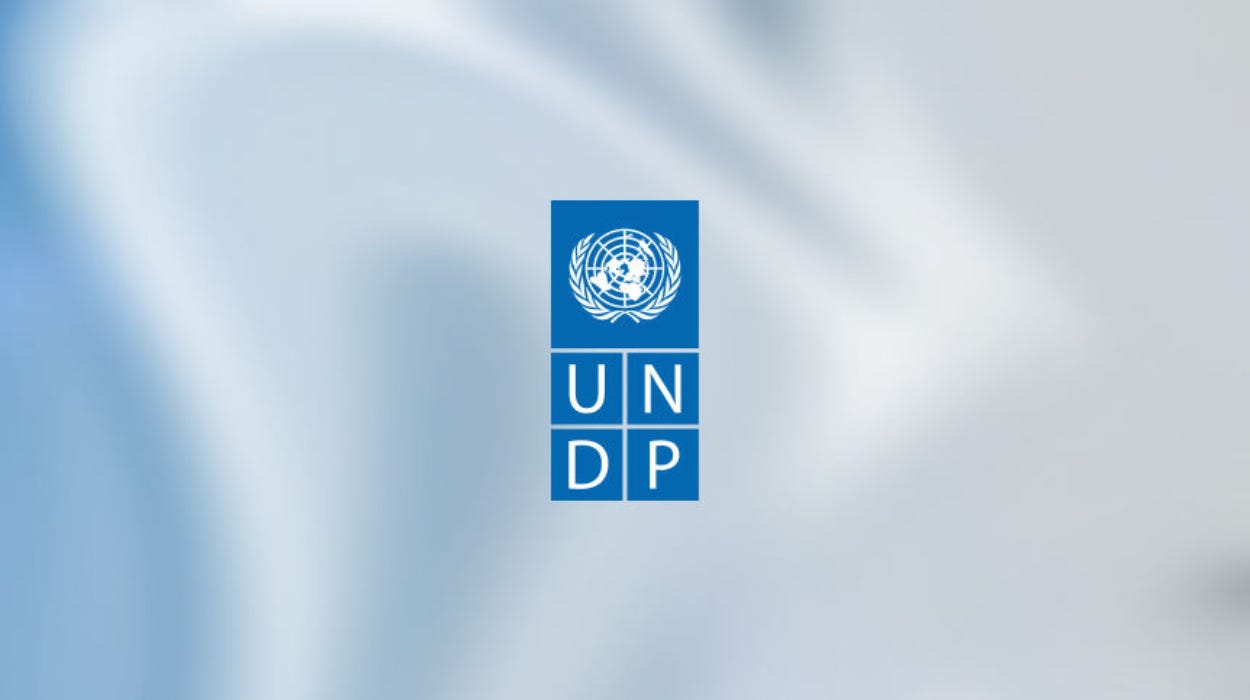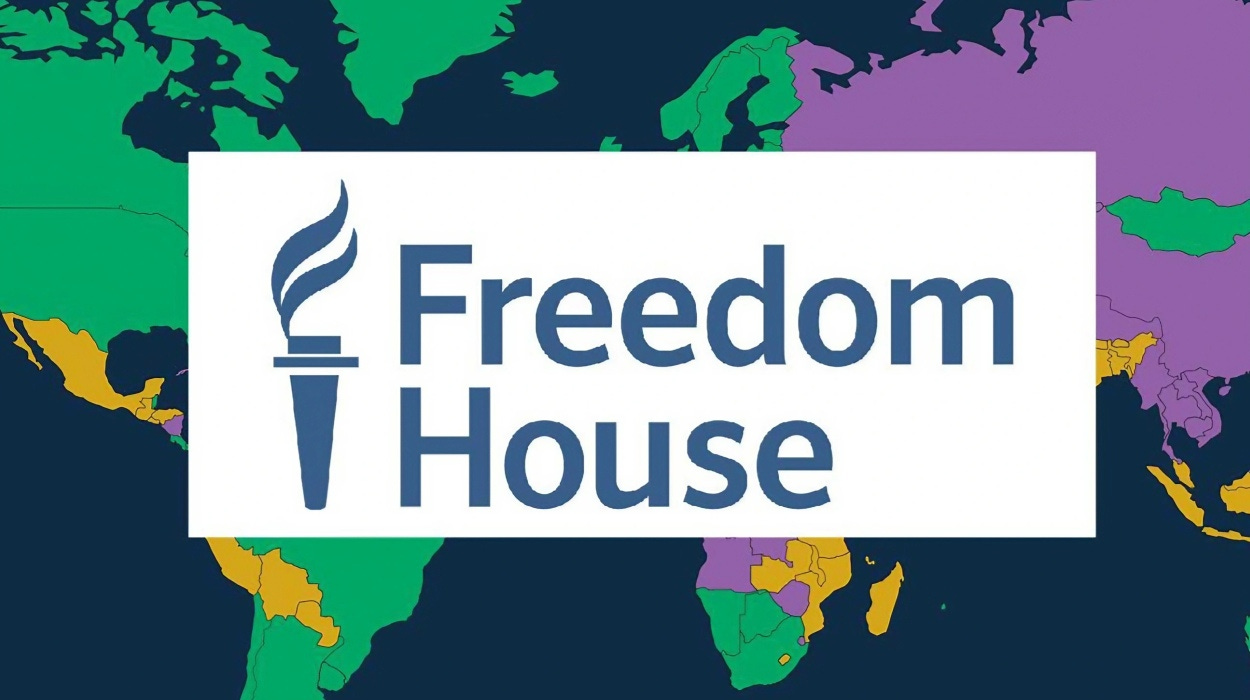UNDP and MFA Abkhazia Exchange Statements on Resilience Programme
UNDP Addresses Abkhazian FM's Requests, Reaffirms Sustainable Goals
SUKHUM / AQW'A ― The United Nations Development Programme (UNDP) has issued a statement in response to the demands of Inal Ardzinba, the Foreign Minister of the Republic of Abkhazia, for clarification on the objectives of projects funded by the United States Agency for International Development (USAID) and for a list of Abkhazian informational resources supported by the UNDP. These demands emerged following Ardzinba's meeting with a UNDP representative, urging action by 7 March, 18:00.
In its response, the UNDP articulated its position regarding the request for additional information on the Partnering for Resilience Programme. Issued by the Sukhum office on 7 March, the statement underscores the UNDP's commitment to its foundational goals and principles:
"In reference to the public request of 29 February 2024 to UNDP for additional clarification about the Partnering for Resilience Programme, we wish to convey a message that UNDP, as an international organisation, is not in a position to comment on content published by other international organisations or agencies on their own websites. We confirm that programme activities of UNDP strictly follow the global mandate of our organisation in order to achieve the purposes of the UN as laid out in the Charter and the set goals to build a more sustainable world.
The Partnering for Resilience Programme supports conflict-affected communities on the ground and its achievements contribute to enhanced human security and resilience, notably: the improved access to essential social services, including education, healthcare; the improved capacity of youth and women in business education and increased demand for production and trade; improved socio-economic conditions, community resilience, and self-reliance; enhanced capacity and expertise of civil society organisations, research institutions, and think tanks."
MFA Abkhazia Responds to UNDP with a Statement
This evening, the Foreign Ministry of Abkhazia released a statement on their official website in response to the UNDP's recent communication. The statement elucidates the ministry's stance and concerns following the UNDP's details on the objectives and outcomes of its Partnering for Resilience Programme, as well as its position regarding the inquiries made by Inal Ardzinba, the Foreign Minister of the Republic of Abkhazia.
The Ministry of Foreign Affairs of the Republic of Abkhazia expressed its dissatisfaction with the UNDP's failure to fulfil the request for the publication of a list of information resources funded by the UNDP, allegedly attempting to destabilise the internal political situation in the Republic of Abkhazia. Highlighting this omission as a deliberate concealment of information, the ministry maintains its right to take adequate and timely measures in response, as part of its imperative to protect the national interests of the Republic of Abkhazia. Moreover, the ministry underscored concerns over projects significantly funded by USAID that purportedly conflict with Abkhazia's national interests, specifically those aimed at the so-called "de-occupation of Abkhazia". Furthermore, the Foreign Ministry criticised the term "community" used by the UNDP in reference to the Republic of Abkhazia, affirming Abkhazia's status as a sovereign and independent state.
Abkhazia Retains Partly Free Status in Latest Freedom House Report
The human rights watchdog, Freedom House, unveiled its annual assessment of global political rights and civil liberties on Thursday, February 29. The report, titled "Freedom in the World 2024: The Mounting Damage of Flawed Elections and Armed Conflict," paints a concerning picture, indicating a continued decline in global freedom for the 18th consecutive year. This decline manifested as diminishing political rights and civil liberties in 52 countries, with only 21 countries showing improvement.
Abkhazia, once again, finds itself classified as Partly Free in the report, a designation consistent with the previous year's assessment. Despite efforts to address various issues, Abkhazia's rating remained stagnant at 39, reflecting the ongoing challenges within the country.
For years, Freedom House has consistently labelled Georgia and Abkhazia as "partially free," contrasting with the designation of "not free" for Azerbaijan and South Ossetia, among others. However, Georgian officials have frequently contested these assessments, questioning their accuracy and impartiality.
In 2022, Georgian parliamentarian Mikhail Sardzhveladze expressed dismay over Abkhazia's score of 40 in the "General Freedom Assessments" category, casting doubts on the reliability and objectivity of the report. He argued that Abkhazia's ranking surpassed that of countries like Kazakhstan and NATO member Türkiye, raising concerns about the methodology employed.
The 2024 report provides a comparative analysis of neighboring and nearby countries, with Armenia rated 54 as Partly Free, Azerbaijan rated 7 as Not Free, Georgia rated 58 as Partly Free, South Ossetia rated 12 as Not Free, and Russia rated 13 as Not Free.
Abkhazia Showcases Its Heritage and Products in Istanbul
The delegation of the Chamber of Commerce and Industry of the Republic of Abkhazia, led by President Tamila Mertskhulava, participated in the 'Caucasus Cultural Meetings' event, hosted by the Istanbul Metropolitan Municipality in collaboration with civil society organisations.
The Abkhazia delegation showcased an array of domestic producers in the event's largest pavilion, highlighting their wine and non-alcoholic products. Brands such as "Wines and Waters of Abkhazia," "Chateau Abkhaz," "Argun Iashta," "Sukhum Brewery," and "Mineral Waters of Abkhazia" were prominently featured. Additionally, visitors had the opportunity to taste an assortment of local delicacies including jams, honey, smoked cheese, and the traditional ajika, along with enjoying an introduction to Abkhazian culture through Turkish-language brochures and magazines.
The event also facilitated valuable engagements with governmental dignitaries. The Abkhaz pavilion welcomed esteemed visitors including Nail Anlar, the Deputy Governor of Istanbul; Birol Aydin, a mayoral candidate from the SAADET party; Fethi Açıkel, a member of the Istanbul city assembly from the Republican People's Party; Erdem Ercan Amichba, Chairman of the Sakarya Chamber of Commerce and Industry Council; Abidin Unal (Gechba), Retired Major General, former Commander of the Turkish Air Force; Rafet Kilic (Kylish), Retired Major General, former Turkish Chief of Operations of the Land Forces Command, and representatives from the Russian Embassy in Türkiye. Each guest was presented with gifts emblematic of Abkhazian hospitality.
Gürcü Akademisyenlerin “Türkiye’ye Karşı Meşru Taleplerimiz Üzerine" Başlıklı Mektubu ve Sonrasında Yaşanan Gelişmeler
(The Letter of Georgian Academics 'On Our Legitimate Claims Against Turkey' and Subsequent Developments), by Gürbüz Arslan (2022, Karadeniz İncelemeleri Dergisi (Vol.16 No: 32))
Abstract
"The Soviet administration convinced neither the Turkish Government nor its allies regarding its territorial demands from Turkey and decided to continue its territorial claims through the republics affiliated with it. Accordingly, it was thought that the international public would not criticise the Union of Soviet Socialist Republics (USSR) for holding an expansionist policy against Turkey, and its territorial demands would be considered reasonable. In line with the decision taken by the Soviet administration, the Georgian Soviet Socialist Republic also became involved in this process, and soon afterwards, the Georgian academics‟ letter titled “On Our Legitimate Claims Against Turkey” was published in Georgian and Soviet press. Following the letter‟s publication, the world became aware of the USSR‟s territorial demands from Turkey, thanks to Georgian academics. This study aims to contribute to the literature by revealing the process that led to the publication of the letter titled “On Our Legitimate Claims Against Turkey” by Georgian academicians. The study examines the publication process, the letter‟s content and the subsequent events after publication in the light of relevant studies, archival documents, and domestic and foreign periodicals."
The full article in PDF can be downloaded by clicking here (2.5 MB)
Published on December 14, 1945, by the Communist newspaper in Tbilisi, the letter “On Our Legitimate Demands Against Turkey” by Georgian academics Simon Janasia and Nikoloz Berdzenishvili gained further exposure when republished in major Soviet newspapers such as Pravda, Izvestiya, and Krasnaya Zvezda on December 20. This publication ensured that the USSR's territorial demands on Turkey, articulated through the voices of Georgian academics, were recognized worldwide.
In their letter, Georgian scholars trace their nation's history back to 2000 BCE, attributing their ancestry to the Hittites (Hittite is the oldest Indo-European language known —Ed.) and Subarians, who they claim ruled over the territories they now seek from Turkey. They argue these lands are integral to Georgian identity. Janasiya and Berdzenishvili assert that Georgians have historically occupied a vast region from the Taurus Mountains to the Caucasus, engaging in agriculture, state-building, and defence of their lands. They emphasise the ancient roots of the Georgians in these territories, citing the establishment of significant cultural centres by their ancestors.
The letter then focuses on the Georgian people's enduring struggle over three millennia to maintain their identity and reclaim their ancestral lands. This narrative includes conflicts with various conquerors, including the Romans, and highlights the resilience and determination of the Georgian people to preserve their heritage and rights.
In his text titled "The Legend of the Georgians," (Gürcülerin efsanesi: Jeopolitik ilmi antoloji denemesi. , 42-46. ss 1946 - İstanbul) Fuat Köprülü critiques the claims made by Georgian academics in their letters about Georgian history. He suggests that their descriptions resemble legends and fairy tales more than a scientific understanding of history. Despite not having information about the academics' scientific credibility, Köprülü doubts they would confuse history with legend to such an extent. He concludes that these academics, driven by political motives, deliberately distorted historical truths and attempted to deceive global opinion. Köprülü emphasizes that such fabrications are incompatible with the dignity of science, which prioritizes the pursuit of truth above all. Köprülü then refutes the claims made in the letter about Georgian history. He notes that no reputable historian starts Georgian history with the Hittites, arguing that attributing Hittite civilization to Georgians and extending Georgian history back to 3000 BCE lacks scientific validity. He also disputes the classification of Laz people as Georgians based solely on linguistic similarities with the Mingrelian language, pointing out that Georgian historian Professor Marr recognizes Laz as a distinct, independent language. While he acknowledges the expression of a vibrant Georgian civilization between the 11th and 13th centuries as a natural pride in their national culture, he stresses the importance of adhering to historical facts, noting the civilization's lack of clear originality and its blending with local elements. Lastly, Köprülü addresses the claim that Georgians, having been severely weakened by Jalal ad-Din Mingburnu shortly before the Mongol invasion, protected the Western world against the Mongols as inconsistent with historical facts.
Abkhazia: A Natural Paradise Where Mountains Meet the Sea
Sergey Bagapsh: Guiding Abkhazia Through Storms to Stability
Gagripsh Restaurant | Gagra, Abkhazia




